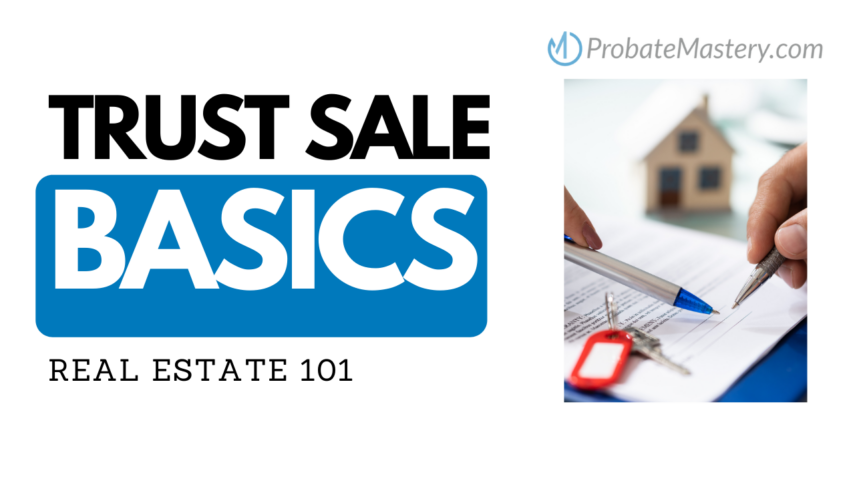A trust sale in real estate is an effective and efficient way to transfer ownership of a property. In this type of transaction, a buyer pays money into an escrow trust account held by an independent third party that is used to pay off the seller’s mortgage and fees before transferring the title deed to the new owner.
What is a Trust Sale?
A trust sale in real estate is a type of transaction in which the original owner transfers interest in the property to a third-party trustee. The trustee then holds money from the purchaser in escrow until all of the seller’s mortgages and fees are paid off. Once this is done, the title deeds are transferred to the new buyer and ownership of the property changes hands.
Understanding the Basics of Real Estate Trust Sales
Real estate trust sales are complex transactions with several steps that need to be taken in order for them to be finalized. It is important for all involved parties to understand the trust sale process and how it works in order to ensure that everything goes smoothly and that the buyer is not at risk of any financial loss due to the transaction. Buyers must understand their rights and liabilities in relation to a trust sale, as well as what they need to do in order to protect themselves during the course of a real estate trust sale.
Probate Training Course for Agents and Investors
Benefits and Drawbacks of a Trust Sale
Trust sales come with both benefits and drawbacks. On the plus side, buyers typically know that the seller has already gone through a due diligence process to verify their identity and property title prior to listing it for sale. This helps give buyers peace of mind regarding legal protection in regard to any potential title issues. Additionally, a trust sale allows buyers to finance the purchase through a third-party lender, providing additional advantages in terms of financing options. However, trust sales can also be quite costly as there are several fees associated with them such as real estate taxes, transfer taxes, appraisal fees, and more.
The Steps Involved in Completing a Trust Sale
Completing a trust sale typically involves several steps. First, the seller must transfer the property title to a trustee – usually a licensed real estate attorney – who will represent their interests in the transaction. Next, they need to select an agent to help them find buyers interested in making an offer on the property as well as handle all paperwork necessary for closing. The third step is negotiating with potential buyers via offers and counteroffers until both parties are able to come to agreeable terms. Finally, attorneys from both sides must draw up and sign appropriate documents for transferring ownership of the property title from the trustee to the buyer.
How to Buy or Sell Property with a Trust Sale
Selling or buying a property with a trust sale can be complicated, but it doesn’t have to be. To ensure both parties get the best deal out of their real estate transaction, it’s important to understand what is involved in a trust sale and how it works. When acquiring a property through a trust sale, buyers should know that they are investing in a title that is already secured by a trustee who is also acting on behalf of the seller during the process. Additionally, they should also familiarize themselves with various real estate regulations and legal documents that need to be signed before becoming the new owner.



